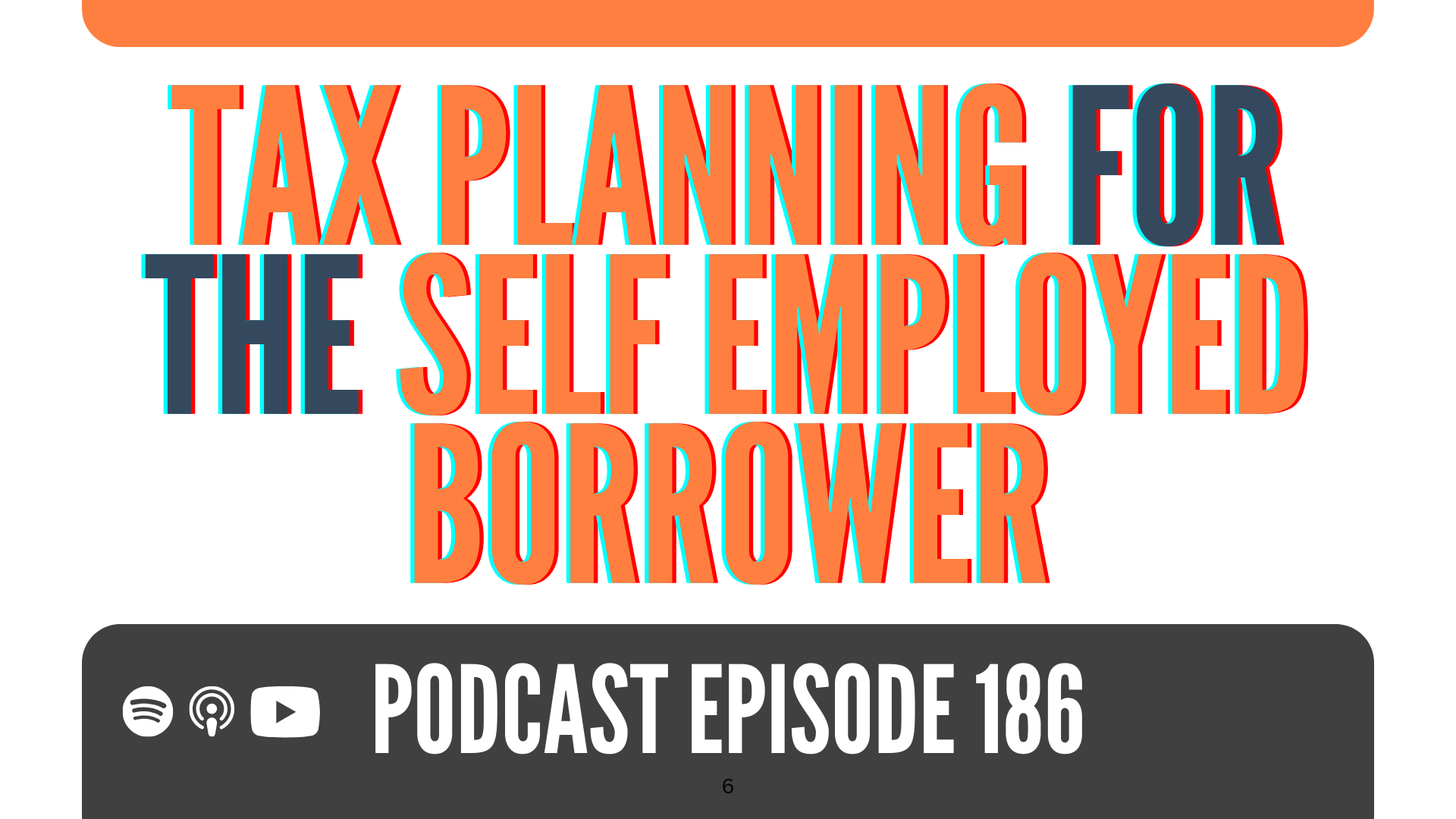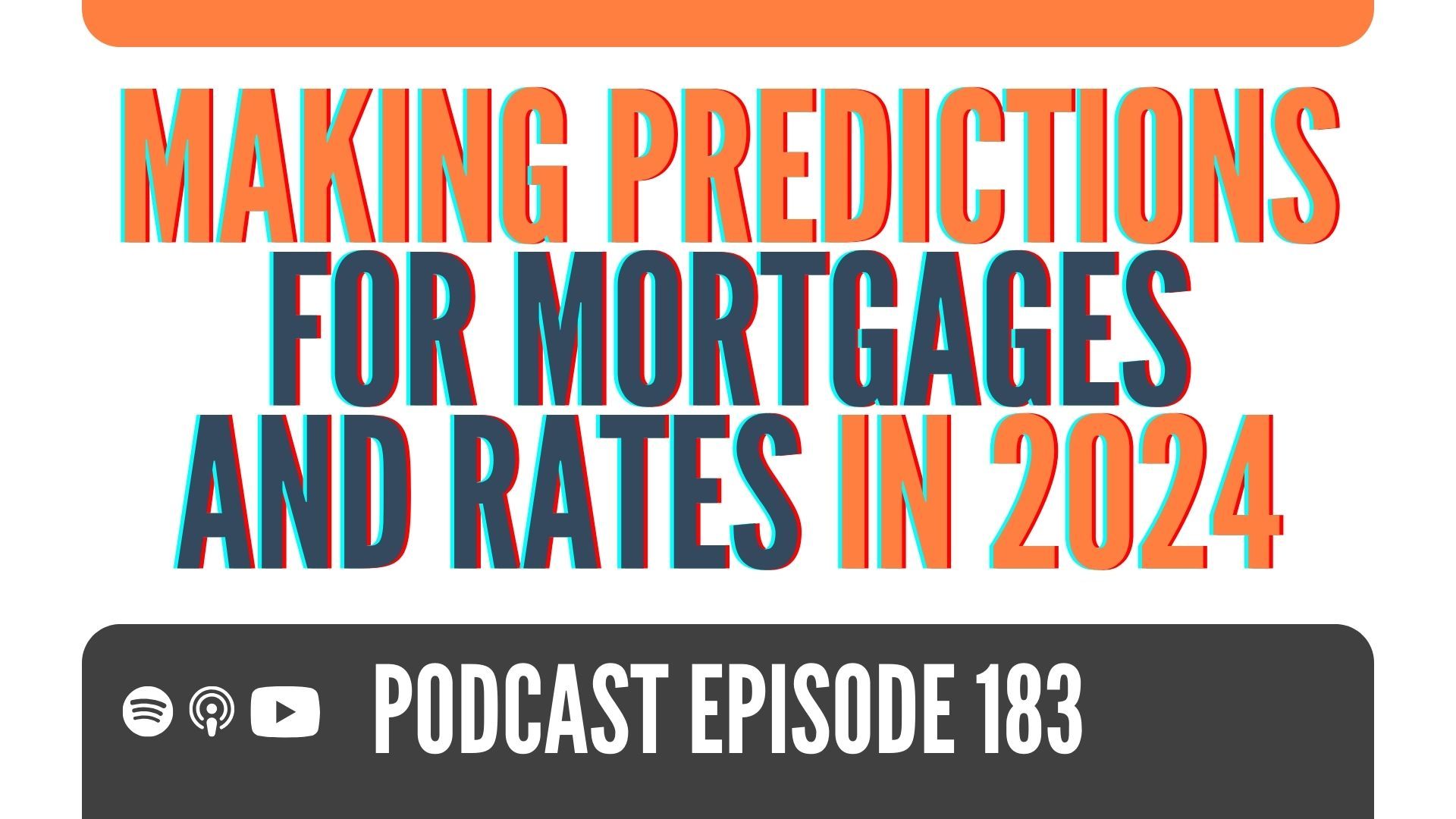The YVR REMO Show Episode 60 - What Are The Proposed New Stress Test Rules?
Everything you need to know about the potential stress test changes
Alex McFadyen
Welcome to a breaking news episode of our show. There were some guideline changes that were announced on April 8, 2021 that could have some pretty big impacts on the marketplace as far as lending is concerned.
We'll cover what's happened, the timelines and dates you need to know, who it’s going to impact, and what you should do.
Dean Lawton
After looking at the numbers and seeing the impact, if the goal here was to make this change to help and slow down the market, I don't think that's the tool to do that. Looking at the actual numbers, it's going to reduce our buying power by around 4.5%.
When you have offers on homes going to $100,000 over asking price, how is this really going to impact that? My first thought is, this just doesn't seem like the right action.
Deryk Williamson
The housing market is absolutely obscene right now all the way across Canada. They're trying to implement a few regulations and the goal here is to essentially decrease Canadians' borrowing and buying power to slow the market down.
There's a stress test on all Canadian mortgages and OSFI is a regulator of all the banks. They have suggested that they're going to increase the stress test rate. It's currently at 4.79%. They want to increase it up to 5.25%.
The Stress Test
It's been around for a few years and there's been a couple changes already. A stress test is where we have to qualify your mortgage at a much higher interest rate to make sure that you will actually afford and qualify for your payment if rates were to rise.
As much as people are walking out of their institution or purchasing a home at 1.5% right now, all mortgages are being qualified at 4.79%, which is already a dramatic increase. When this was implemented a few years ago, it was about a 20% borrowing power drop. That made a huge difference and it actually created this massive funnel of panic purchasing. A lot of people knew that their qualification was going to go away and their pre-approval might not be firm. It created this mad panic up until the stress test actually came into place. We're thinking that we might see a little bit of that again.
I don't think this is going to have the impact that they want it to but at the end of the day, it's just a conversation with your mortgage broker to figure out what your qualification is prior to June 1, which is a potential date.
Dean Lawton
This isn't concrete, things could change. It could be even more of a drastic change or it might be a little bit more relaxed. It’s a bit of a waiting game but we're preparing that this is going to take place and we're preparing our clients for these timelines.
Alex McFadyen
The original stress test was implemented back in 2016. That's when there was a variety of changes that occurred, not just to how you qualify but to how the mechanics of lending works behind the scenes. This is why today we have quite a few different interest rate categories for someone putting less than 20% down, more than 20% down, more than a million dollars, and so forth.
I've already run the numbers on some of my clients, and I can tell you, it will definitely impact them. It's not going to impact, in my opinion, the right issues at hand and the right issues that we should be dealing with regarding supply. There's more people and more Canadians that want to own real estate than there is supply. We're still struggling on a day to day basis for cities to issue permits to build the proper types of buildings. If they address that actual issue, we're not in the position that we are today.
There's a lot of people out there who are at their max qualification already because of the stress test. They could actually make payments with no issue because again, the rates are 2.5% or 3% lower than that right now. My projection of this is that, with this information coming out, the markets only going to heat up for the next two months. We're not going to see a big drop off like we did back in 2019.
Deryk Williamson
This is not for everybody purchasing a home, this is for uninsured mortgages (if you're buying with less than 20% down or even if you have more than 20% down for a 25-year amortization and the property is worth less than a million dollars.) There are some guidelines where you actually won't be impacted by this. One case is If you're buying with more than 20% down and you need a 30-year amortization and your property is going to be worth over a million or your purchase price is over a million. We don't know which lenders are going to be impacted but we know that this is directly funneled towards the banks. As of right now, most credit unions actually have a different provincial regulator. We don't know if they're going to follow suit, they typically will eventually but as of right now there are still no stress test programs available. Don't make the assumption that this is going to impact you, ask the right questions to figure out if it's going to and we'll make sure to keep everyone up to date on those changes.
Alex McFadyen
Last time around, we were given one or two months before they made the rules. There was a mad rush for someone to get a pre-approval, because at the time, if you had a pre-approval from a lender you could actually close within 120 days and they would honor those rules. We should be aware of two dates, May 7 and May 24. There's a questioning period starting on May 7 and then a closing period on May 24 where they're going to make their final decision. Announced changes will happen on June 1.
Dean Lawton
That's the key difference from last time is there wasn't this question period or this comment period where experts in the industry could comment on this. That's key because this isn't final and when we heard when the announcement was made in 2016, it was pretty much this is what's happening, here's the dates to get prepared.
We would hope that if you had a contract written before June 1, even if it is closing after June 1, it would be honored. Last time around, that wasn't the case with the foreign buyers tax as an example.If the contract was written years before such as a pre-sale, those people still had to pay foreign tax on those pre-sales even though those contracts are written well before the foreign tax was imposed. We're really hopeful that they will honor contracts written the date that they're written. If they don't, gosh, pre-sales can be very risky.
Alex McFadyen
Who does it impact? It's been talked about already that it’s federally regulated institutions, which basically is the big banks more or less credit unions. Some of the bigger credit unions like Coast Capital picked it up pretty much right off the bat and decided to implement the new guideline changes in the past. Even to this day, some of the more local credit unions do make exceptions and still don't use the traditional stress test, they might charge a higher rate. I would imagine that most local credit unions are looking at this and probably not implementing immediately.
If you're purchasing a property over a million, this is going to impact you. These are the people that are going to feel it the most just based on the volume of the price point. Refinances to me is a really key point. We've been doing a lot of refinances in the last year. And it's not just because people have a ton of debt, it's because they're trying to reduce their total costs. It makes a lot of sense, especially given like the lower interest rates right now. Who is it going to impact negatively? Those who have an uninsured mortgage and a 30-year amortization. We have to think about that and say, that's actually going to negatively impact the people who are renting, because it's going to potentially reduce the supply, which means at the end of the day, there's less rental properties. This is going to cause higher rental prices.
Who is this helping from that perspective?
Dean Lawton
We have clients that purchased townhomes in early 2020 with less than 5% down that now could potentially refinance into a conventional product, and that will potentially impact those people.
Deryk Williamson
A lot of times, we have certain institutions that can bend and extend that servicing. Typically, most lenders can use 39% of your income to cover the housing costs, which is mortgage payments, property taxes, and strata fees. We have examples where we have lenders that will go up to 46% and 47%. Having a strong application and knowing that there are different solutions out there is really important when you go into this because one bank might say no and the other might say yes,
Alex McFadyen
Looking at the dates and at the timelines that can be affected, what are you guys thinking that we're going to see here as far as market conditions?
Dean Lawton
People that are sitting on the fence and maybe thinking of buying in the late summer are likely going to be buying before June 1 now. We're going to see an extreme amount of pressure in the market from now until middle of May. Lenders are already significantly delayed with volume so we're going to see extreme extreme delays. There's a number of lenders that won't even look at a file for four weeks right now. Waiting until these deadlines are confirmed, I wouldn't wait. If your goal is to purchase a home I would get in now and move forward and get that approval in place as soon as possible. I just see extreme pressure coming.
Deryk Williamson
We're already seeing a bit of a slowdown in the detached market, there was a massive boom over the last three to six months. It seems like it's kind of toppling off, there's still multiple offers, but there's maybe two or three offers instead of 30. It seems like the strata market is really going crazy. If someone's qualification has actually been pushed away, or they were just barely qualifying for detached and they can't find another option, they might be more keen to move into the strata market. This could cause that to bloom even further than it is.
Alex McFadyen
If you're selling detached, sell that detached home now because the fuel is back on the fire. The detached housing market has slowed down a little bit. I think this brings it right back for at least the next two months. As an investor, you want to be prepared, but you don't necessarily want to just dive in without having the information.
Be prepared for longer wait times, but does that mean? If you're purchasing a home, you have to get a little bit longer subjects or you have to make sure to do that due diligence upfront. There's a little bit of a risk to be had there.
Dean Lawton
This is not impacting businesses or self-employed clients that are looking for alternative lending solutions.
Have more questions? Get ahold of us!
We're on Instagram!
instagram.com/thrivemortgageco
Check us out on Facebook!
How to Reach US! 📲
Call 604.398.5575 or Email us!
More Questions or READY to get started!?
Just Ask US > Click Here to set up a call or EMAIL us











